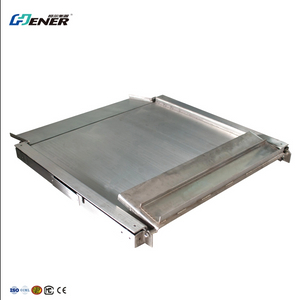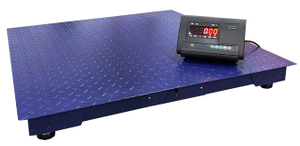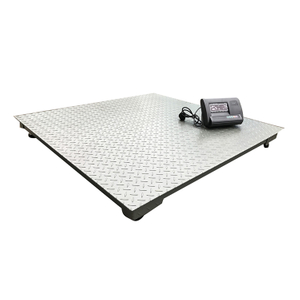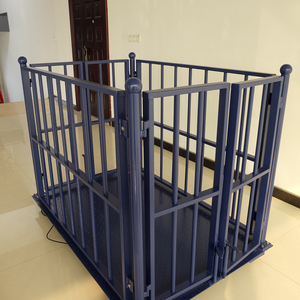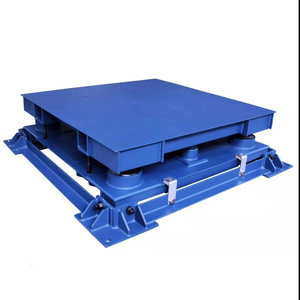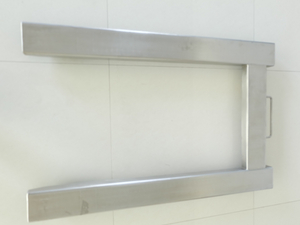
Weighing scales are indispensable tools in the food and beverage industry, playing a pivotal role in various aspects of production, quality control, packaging, and distribution. Accurate measurement is critical to maintaining product consistency, ensuring compliance with regulatory standards, optimizing costs, and enhancing consumer trust. This comprehensive exploration delves into the diverse applications of weighing scales in the food and beverage sector, highlighting their significance in maintaining operational integrity and meeting industry standards.
Ensuring Consistency and Quality in Production
Ingredient Measurement
In the food and beverage industry, precise measurement of ingredients is crucial for ensuring product consistency and quality. Weighing scales are used to measure exact quantities of ingredients during the production process. This accuracy is essential for maintaining the flavor, texture, and nutritional content of the products. Whether it's measuring spices for a batch of sauce, flour for baking bread, or hops for brewing beer, scales ensure that each batch meets the desired specifications.
Accurate ingredient measurement also helps in maintaining the integrity of recipes and formulations. Consistency in ingredient ratios is vital for producing high-quality products that meet consumer expectations. Any deviation in measurements can lead to variations in taste, appearance, and overall quality, potentially affecting brand reputation.
Batch Production
In batch production, weighing scales are used to measure and mix large quantities of ingredients accurately. This ensures that each batch is consistent with the previous ones, maintaining uniformity in product quality. For example, in dairy processing, scales are used to measure the exact amounts of milk, cream, and other ingredients required to produce cheese or yogurt. This precision is crucial for achieving the desired texture and flavor in the final product.
Advanced digital scales and automated weighing systems are often integrated into production lines to enhance efficiency and accuracy. These systems can automatically measure and dispense ingredients, reducing the risk of human error and improving overall productivity.
Enhancing Quality Control and Assurance
In-Process Quality Checks
Weighing scales play a vital role in quality control and assurance processes within the food and beverage industry. In-process quality checks involve measuring the weight of products at various stages of production to ensure they meet specified standards. For example, in meat processing, scales are used to weigh portions of meat to ensure they conform to weight specifications before packaging. This ensures that each package contains the correct amount of product, maintaining consistency and customer satisfaction.
In addition to portion control, weighing scales are used to monitor the weight of packaged goods to verify that they meet label claims. This is particularly important for products sold by weight, such as cereals, snacks, and frozen foods. Accurate weight measurements help prevent underfilling or overfilling, ensuring compliance with regulatory requirements and avoiding potential legal issues.
Laboratory Analysis
In food laboratories, weighing scales are used for various analytical procedures, including testing the moisture content, fat content, and nutritional composition of products. Accurate measurements are essential for ensuring that products meet quality and safety standards. For instance, moisture analyzers, which are specialized weighing scales, are used to determine the moisture content in baked goods, cereals, and other products. This information is critical for maintaining product quality and shelf life.
Laboratory scales with high precision and sensitivity are also used for microbiological testing, chemical analysis, and sensory evaluation. These tests provide valuable data that supports quality assurance efforts and ensures that products meet industry standards and consumer expectations.
Optimizing Packaging and Distribution
Portion Control and Packaging
Weighing scales are essential for portion control and packaging in the food and beverage industry. They ensure that each package contains the correct amount of product, maintaining consistency and reducing waste. This is particularly important for products sold in standardized portions, such as individual snack packs, pre-packaged meals, and beverages.
Automated packaging systems often incorporate weighing scales to measure and fill packages accurately. These systems can handle high volumes of products, improving efficiency and reducing labor costs. By ensuring precise portion control, scales help optimize packaging operations, reduce material costs, and enhance overall productivity.
Load Management in Distribution
In the distribution phase, weighing scales are used to manage the weight of loads transported by trucks, ships, and airplanes. Accurate weight measurement ensures that vehicles are loaded within legal weight limits, preventing overloading and ensuring safe transportation. This is particularly important for long-haul shipments, where maintaining vehicle balance and stability is critical for safe operation.
Portable truck scales and weighbridges are commonly used to weigh vehicles before they leave the distribution center, ensuring compliance with transportation regulations. Accurate weight data also helps optimize transportation efficiency, reduce fuel consumption, and minimize the risk of fines or penalties for non-compliance.
Ensuring Regulatory Compliance
Labeling and Weight Claims
Compliance with labeling and weight claims is a critical aspect of the food and beverage industry. Regulatory authorities, such as the Food and Drug Administration (FDA) in the United States and the European Food Safety Authority (EFSA) in Europe, require that food products be accurately labeled with their weight and nutritional information. Weighing scales ensure that products meet these requirements, providing precise weight measurements for labeling purposes.
Accurate labeling helps prevent misleading claims and ensures that consumers receive the correct amount of product as stated on the package. This transparency builds consumer trust and supports brand reputation. Failure to comply with labeling regulations can result in fines, product recalls, and damage to the company's reputation.
Traceability and Documentation
Weighing scales play a vital role in traceability and documentation within the food and beverage industry. Accurate weight measurements are essential for maintaining detailed records of product batches, ingredient usage, and production processes. This information is crucial for traceability, allowing companies to track the movement of products through the supply chain and identify the source of any issues or recalls.
Traceability is particularly important for ensuring food safety and meeting regulatory requirements. By providing accurate weight data, weighing scales support comprehensive documentation and record-keeping, helping companies maintain compliance with food safety standards and regulations.
Supporting Sustainability and Cost Management
Reducing Food Waste
Weighing scales contribute to sustainability efforts by helping reduce food waste in the food and beverage industry. Accurate measurement of ingredients and portions ensures that the right amount of product is used and packaged, minimizing waste and optimizing resource utilization. This is particularly important in large-scale production, where small discrepancies in measurements can lead to significant waste over time.
By reducing food waste, weighing scales support sustainability initiatives and help companies achieve their environmental goals. This not only benefits the environment but also enhances the company's reputation as a responsible and sustainable business.
Cost Efficiency
Accurate weight measurement is essential for cost efficiency in the food and beverage industry. Weighing scales help optimize the use of ingredients, reducing overuse and minimizing waste. This leads to cost savings in raw material procurement and production processes. Additionally, precise portion control and packaging help reduce material costs and improve overall productivity.
Weighing scales also support cost management by providing data that helps optimize transportation and storage costs. Accurate weight measurements ensure that vehicles are loaded to their maximum capacity without exceeding weight limits, reducing transportation costs and improving efficiency.
Enhancing Consumer Trust and Satisfaction
Product Consistency and Quality
In the competitive food and beverage market, maintaining product consistency and quality is essential for building consumer trust and satisfaction. Weighing scales play a critical role in ensuring that products meet quality standards and deliver consistent taste, texture, and appearance. This consistency enhances consumer trust in the brand and encourages repeat purchases.
Transparent Labeling and Packaging
Accurate weight measurement supports transparent labeling and packaging, providing consumers with reliable information about the products they purchase. This transparency enhances consumer confidence in the brand and ensures that they receive the correct amount of product as stated on the package. By meeting consumer expectations and regulatory requirements, weighing scales help build and maintain a positive brand reputation.
English
العربية
Français
Русский
Español
Português
Deutsch
italiano
Nederlands
Tiếng Việt
ไทย
Polski
Türkçe
ភាសាខ្មែរ
Bahasa Melayu
Filipino
Bahasa Indonesia
Română
Čeština
Монгол
қазақ
Српски
हिन्दी
Slovenčina
Slovenščina
Norsk
Svenska
Ελληνικά
Suomi
Հայերեն
Latine
Dansk
Shqip
Hrvatski
Afrikaans
Gaeilge
Eesti keel
Oʻzbekcha
latviešu
Azərbaycan dili
Беларуская мова
Български
ქართული
guarani
Кыргызча
Lietuvių
Македонски
Malti
Soomaali
Тоҷикӣ
Türkmençe





